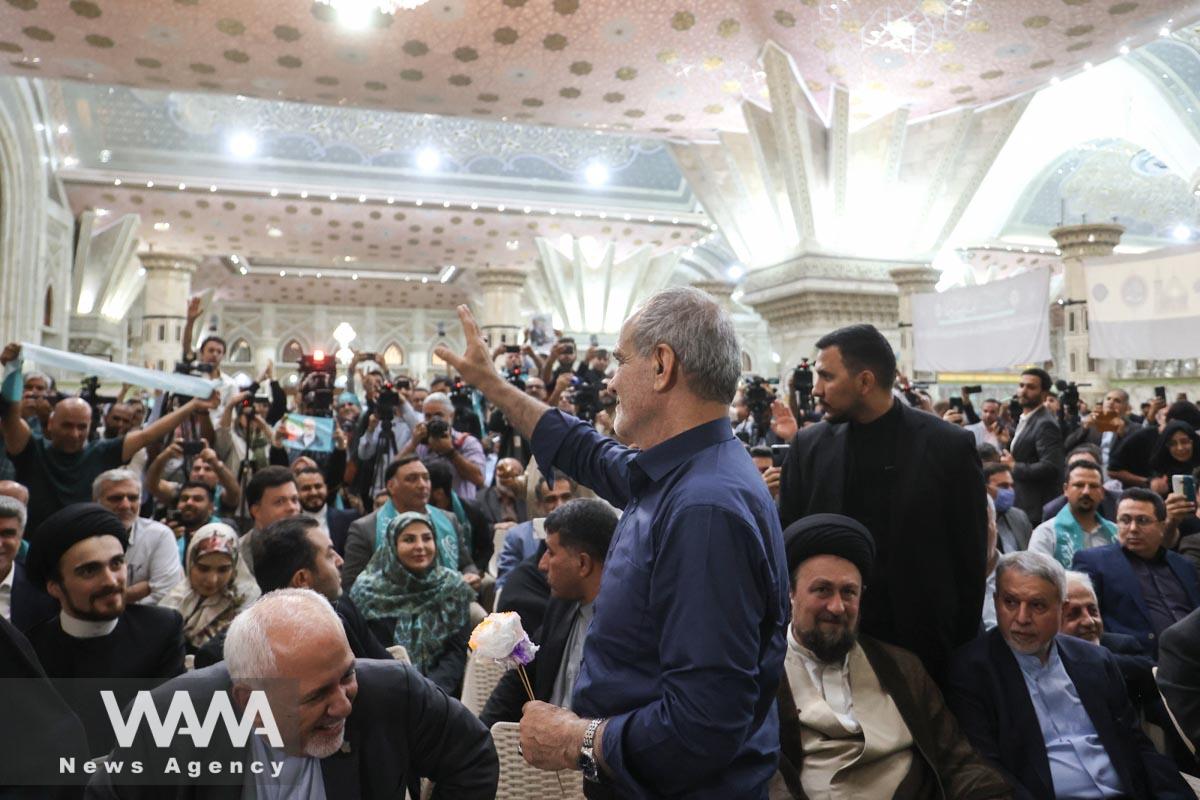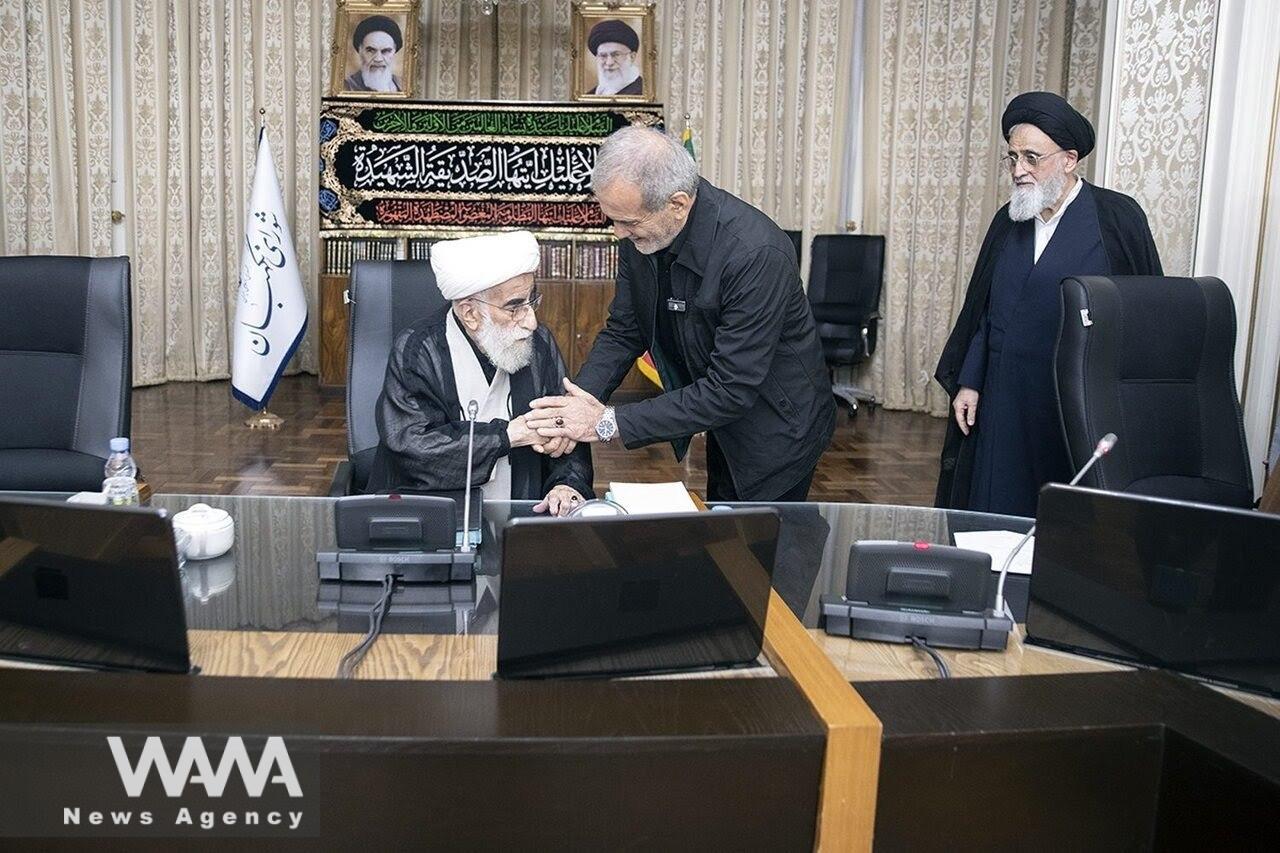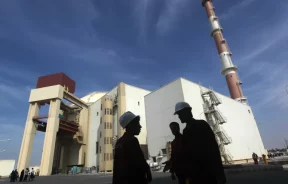Messages from the Election of Dr. Pezeshkian: Domestic and Foreign Perspectives
WANA (July 13) – By taking an expert look at Iran’s main issues in both domestic and foreign arenas, the election of Dr. Masoud Pezeshkian can be seen as a “favorable choice” and a hidden blessing, whose positive effects will gradually become evident in the internal and external political spheres.
This choice, in the current circumstances, is a clear sign of the “rationality of Iranian society” and the “wisdom of the leadership” that facilitated this choice for the people.
The 14th government will soon be established, but before the “engine of the new government” is ignited, it is essential to realistically and critically examine the explicit and implicit messages of the presidential election.
These messages are directed towards the government, the leadership, neighboring countries, regional actors, and the international system. Even the Iranian people are part of these messages. If the internal and external messages of the election are well understood, it will pave the way for correcting erroneous practices.

Iran’s President-elect Masoud Pezeshkian waves during a gathering with his supporters at the shrine of Iran’s late leader Ayatollah Ruhollah Khomeini, in south of Tehran, Iran July 6, 2024. Majid Asgaripour/WANA (West Asia News Agency)
Domestic Policy Messages from Dr. Pezeshkian’s Election:
1- The recent election demonstrated the legitimacy of the Islamic Republic of Iran. Not everyone who participated in the election necessarily agrees with all past policies. Similarly, those who boycotted the election are not necessarily against the system. A significant portion of the population, both boycotters and participants, are “discontent.” They are not overthrowers and will support the government if it performs effectively.
2- Mr. Jalili’s approach in the election was “maintaining the status quo with gradual changes,” while Dr. Pezeshkian’s approach was “revisiting governance practices.” Pezeshkian’s election indicates that the majority of Iranians are dissatisfied with the current domestic and foreign policies and seek change. Apart from a minority of overthrowers, it is likely that most boycotters also desire changes and reforms in the current practices.
3- The people have moved beyond the binary of fundamentalism and reformism. For example, Mr. Qalibaf, who had significant support from influential governmental bodies and reference groups like the Islamic Coalition Party, renowned preachers, and clerics, did not gain popular support. On the other hand, many votes that were expected to go to fundamentalists ended up in Pezeshkian’s favor. Therefore, the majority of the people have surpassed partisan binaries. Just as the binary between the Combatant Clergy Association and the Association of Combatant Clerics is history, the binary between fundamentalism and reformism is heading in the same direction.
4- Iranian society has reached political maturity and rationality, evaluating the promises of electoral candidates realistically. Promises like welfare cards, free travel, gold, a world of opportunities, etc., were not well-received by the masses, and the majority voted for someone who did not make unrealistic and fantastical promises.
5- Elections are no longer a stage for magic shows. The awakened conscience of the Iranian people distinguishes honesty and truthfulness from secrecy and outdated political tactics. Pezeshkian connected with the people’s hearts, and his honesty, integrity, and past performance led to public belief in him.
6- In recent elections, people’s behavior has been based on a specific feeling they get from various candidates. This feeling arises from within and the people’s innate nature. Hatred, unfairness, utopian thinking, and fantasy create negative feelings among the people, whereas ethical conduct, honesty, fairness, and realism create positive feelings.
7- People’s expectations of the president have become realistic based on the executive branch’s role in governance. Questions from the people to the candidates and monitoring public comments on social media show that people no longer have grand expectations from the president and understand the limitations of the executive branch in domestic and foreign policy.
8- The impartiality and fair stance of governmental institutions, coupled with Dr. Pezeshkian’s emphasis on implementing higher-level programs like the Seventh Development Plan, indicate that these institutions have also reached a rationality for cooperation, and the project of unification has practically failed.
9- Therefore, we can predict that the intensity of confrontations and conflicts between the government and governing institutions in Pezeshkian’s administration will not be like before (during the Reformist and Moderate governments) and will decrease. A common geography of cooperation based on national interests will form between the governing institutions and the elected government.
10- The people expect Dr. Pezeshkian to employ specialists, devout, honest individuals who are dedicated to the country’s development and progress, regardless of partisan affiliations. The expected government from Pezeshkian is one based on honesty and transparency.

Masoud Pezeshkian the president-elect met with Ayatollah Jannati, the head of the Guardian Council. President office / WANA News Agency
Foreign Policy Messages from Dr. Pezeshkian’s Election:
1- The people of Iran do not see an alternative to the Islamic Republic of Iran. They are not seeking revolution or overthrow. They prefer moderation and gradual reforms over regime change, as evidenced by the addition of 6 million voters, or 10%, in the second round of elections.
2- The heavy propaganda by exiled opposition to increase the number of boycotters in the second round failed.
3- The people of Iran want a shift in the government’s foreign policy direction. They deeply understand that the core principles of foreign policy are a matter of governance, but they have also experienced that government approaches in foreign policy can influence the direction of governance in foreign policy. For instance, during the administrations of Reconstruction, Reform, Fundamentalism, Moderation, and Neo-Fundamentalism, people witnessed changes in foreign policy directions.
4- The people of Iran have realized that neighborhood policy and the Eastward orientation alone, separate from the oppressive machinery of sanctions, do not yield results.
5- The people of Iran do not consider the JCPOA a loss. They do not attribute its technical flaws to the negotiating team. They deeply understand that diplomacy is bargaining, involving “us” and “the other.” The JCPOA, as Trump himself said, was a loss for the US, which is why he withdrew from it.
6- Dr. Pezeshkian did not promise to revive the JCPOA but stated that his government’s approach would be negotiation and efforts to resolve or reduce sanctions. Therefore, the new Iranian government will not put all its eggs in the negotiations basket.
7- The new Iranian government will not change Iran’s regional policies. Pezeshkian supports neighborhood policy and Iran’s role in the resistance front.
8- The new Iranian government will base its foreign policy on Iran’s economic interests and a win-win principle. Thus, future negotiations on the nuclear issue will proceed based on economic benefits for Iran.
9- In the new government, the field and diplomacy will reach a balance and complement each other, and the binary of field and diplomacy will harm the country’s interests and benefits.
10- The three principles of dignity, wisdom, and expediency will guide the foreign policy of Pezeshkian’s government. Therefore, the 14th government will simultaneously adopt interactive and confrontational approaches. Iran’s national interests, especially economic interests, will determine whether the government pursues an interactive or confrontational approach.
BY: Seyed Mohammad Hosseini, Senior Expert at the Center for Political and International Studies












